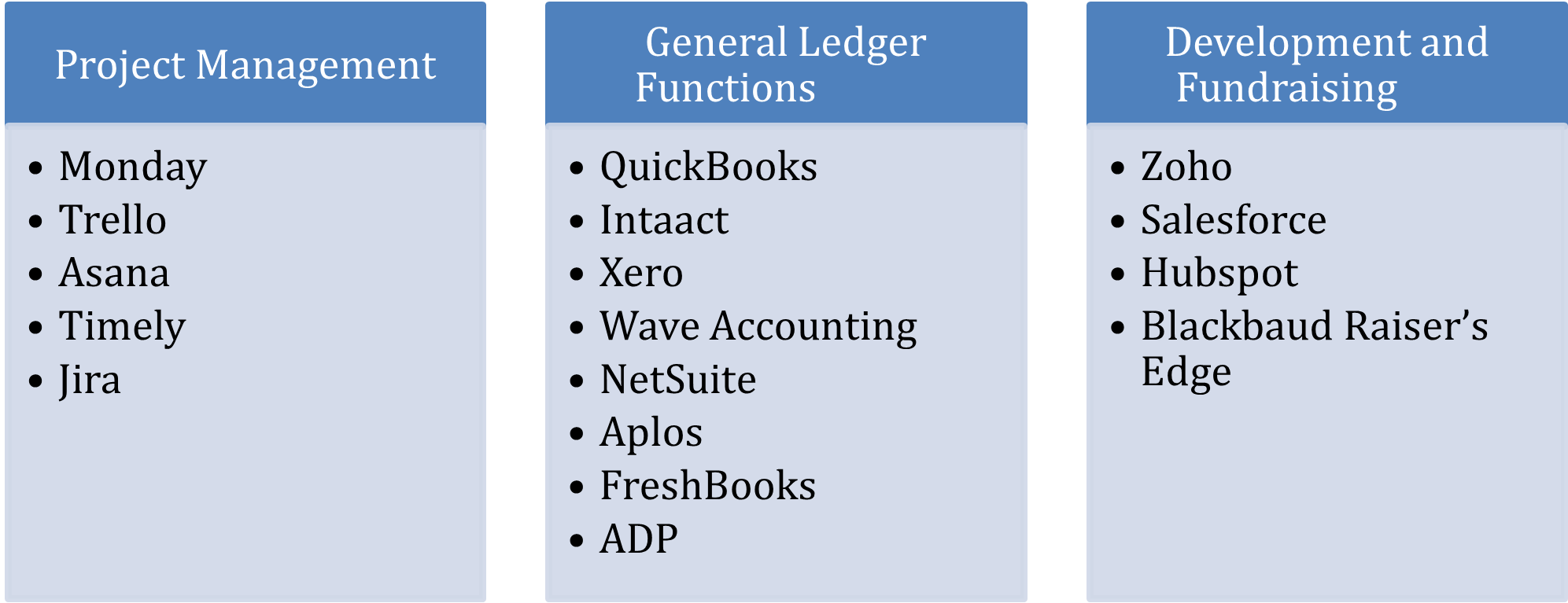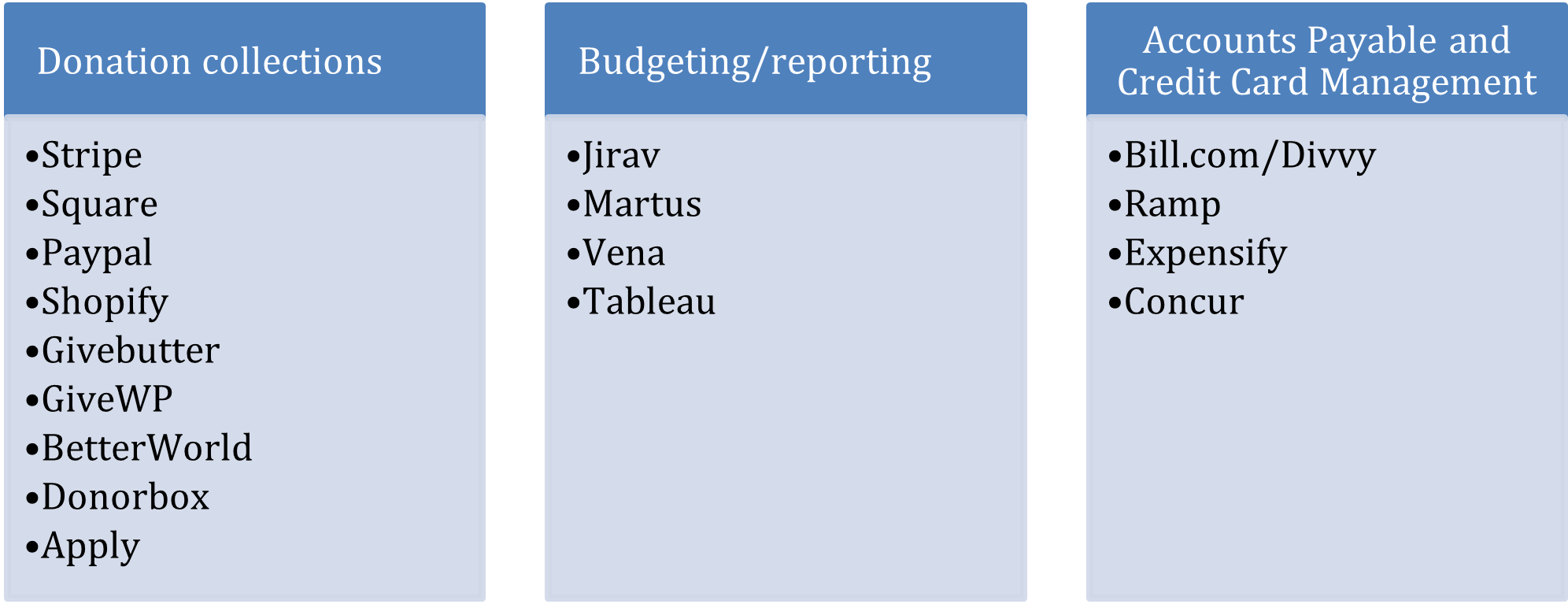Understanding the Risks: How Tech Sprawl Compromises Nonprofit Grants Management
Many nonprofits flourish or flounder by their ability to successfully manage grants, and there are lots of components to success, which vary based on the nonprofit, the nature of each grant, and the requirements set forth by the grantor.
Technology has come a long way in helping teams keep everything organized. But, as your organization grows, can you confidently rely on the foundational applications that have been established over the years? Do you have effective internal control over the grants management process? Is the process efficient and streamlined, with minimal time spent navigating through the maze of data to produce the necessary reporting?
Consider some of the myriad (nuts and bolts) applications that might be in use across departments:


While technology can bring significant benefits to nonprofit grants management, the uncontrolled growth and use of multiple disparate systems can introduce several risks.
Tech Sprawl Risks
What is Tech Sprawl?
Tech sprawl in an organizational context refers to the uncontrolled proliferation of technology without considering its long-term impact, resulting in fragmented systems, increased costs, and security risks.
Here are some ways in which tech sprawl can impact nonprofit grants management.
Data Fragmentation: Tech sprawl can lead to the fragmentation of data across multiple systems and platforms. This can make it challenging to have a comprehensive view of grant-related information, such as financial data, performance metrics, and compliance records. Without centralized and integrated data management, it becomes difficult to generate accurate and timely reports or conduct meaningful analysis.
Inefficient Workflows: When different technology solutions are adopted without considering their integration, it can result in inefficient workflows. Staff members may need to duplicate efforts, manually transfer data between systems, or navigate multiple interfaces, leading to reduced productivity and increased chances of errors. This can affect the overall efficiency of grants management processes.
Security Vulnerabilities: Each additional technology solution introduces potential security risks. Without a centralized approach to tech management, organizations may struggle to implement consistent security measures across all systems. This can result in data breaches, unauthorized access to sensitive information, or other cybersecurity incidents that can jeopardize the integrity of grant data and put the organization at risk.
Training and Support Challenges: Adopting multiple technology solutions means that staff members need to learn and adapt to different platforms. This can lead to increased training and support needs, especially if the systems are complex or lack intuitive interfaces. Inadequate training and support can hamper the effective utilization of technology, reducing its overall value in grants management.
Compatibility Issues: Tech sprawl can result in compatibility issues between different systems. Incompatibilities may arise in terms of data formats, integration capabilities, or system requirements. This can hinder the smooth transfer of data and information between systems, creating data inconsistencies and potential errors.
Increased Costs: Maintaining multiple technology solutions can lead to higher costs for licenses, subscriptions, maintenance, and support. Without a centralized approach to technology management, organizations may miss opportunities for cost savings through volume discounts or a more strategic investment in a unified system.
What We Advise:
To mitigate these risks, AAFCPAs encourages clients to implement a strategic approach to technology adoption and management. This may involve conducting a comprehensive assessment of current systems, defining clear goals and requirements, seeking integrated solutions that address multiple needs, and establishing robust data management and security protocols. Further, organizations are advised to promote collaboration between IT and business units and to prioritize scalability and long-term planning when adopting new technologies.
It’s critical to ensure that all aspects of the grant process are properly managed to maintain compliance and maximize your ability to receive funding. Centralizing grants management technology can enhance efficiency, data integrity, and overall effectiveness in managing nonprofit grants.
If your organization could benefit from consolidated systems or a new approach to grants management, please contact Robyn Leet, Partner, Business Process Assessments & Attestations at 774.512.4010 or rleet@nullaafcpa.com—or your AAFCPAs Partner.

